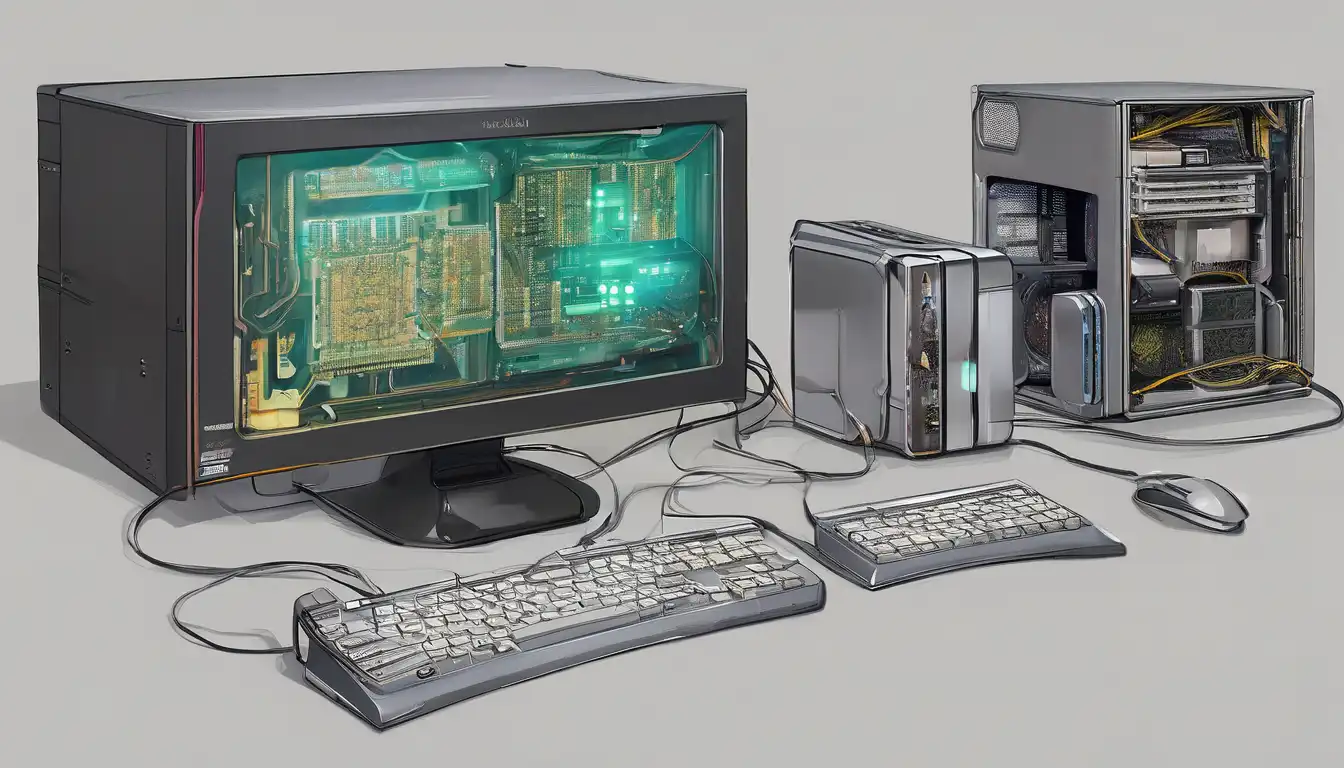Revolutionary Advances in Computer Hardware Technology
The landscape of computer hardware technology is undergoing unprecedented transformation, with innovations emerging at an accelerated pace. From quantum computing breakthroughs to AI-optimized processors, the hardware sector is pushing boundaries that were once considered science fiction. These advancements are not only enhancing computational power but also redefining how we interact with technology in our daily lives.
Next-Generation Processors and CPU Architecture
Modern processors are evolving beyond traditional silicon limitations. Companies like Intel, AMD, and ARM are developing chips with 3D stacking technology, allowing for unprecedented transistor density. The latest processors feature:
- Advanced 5nm and 3nm manufacturing processes
- Heterogeneous computing architectures
- Integrated AI acceleration units
- Improved power efficiency and thermal management
These innovations enable faster data processing while consuming less energy, making them ideal for both mobile devices and high-performance computing systems. The integration of neural processing units (NPUs) directly into CPUs represents a significant leap forward for artificial intelligence applications.
Graphics Processing Units (GPUs) Redefined
GPU technology has expanded far beyond gaming and graphics rendering. Modern GPUs now serve as powerful parallel processors for scientific research, data analysis, and machine learning. Key developments include:
- Real-time ray tracing capabilities
- Tensor cores for AI workloads
- Enhanced memory bandwidth with GDDR6X and HBM3
- Multi-chip module designs for scalability
These advancements make GPUs indispensable for complex computational tasks, from drug discovery simulations to autonomous vehicle training systems. The convergence of gaming and professional applications continues to drive innovation in this sector.
Memory and Storage Revolution
The memory hierarchy is experiencing radical improvements across all levels. DDR5 memory technology offers double the bandwidth of previous generations, while storage solutions are becoming faster and more reliable. Notable innovations include:
- PCIe 5.0 SSDs with read speeds exceeding 14,000 MB/s
- 3D XPoint technology for persistent memory
- QLC NAND flash for high-density storage
- Computational storage drives with integrated processors
These developments significantly reduce data access latency and improve overall system responsiveness. The integration of storage-class memory bridges the gap between traditional RAM and storage devices.
Quantum Computing Hardware Breakthroughs
Quantum computing represents the frontier of hardware innovation. Recent developments in qubit stability and error correction are bringing practical quantum computing closer to reality. Key achievements include:
- Superconducting qubits with improved coherence times
- Topological qubits for enhanced error resistance
- Cryogenic control systems for quantum processor operation
- Hybrid quantum-classical computing architectures
While still in early stages, these innovations promise to solve complex problems that are intractable for classical computers, potentially revolutionizing fields like cryptography, materials science, and pharmaceutical research.
Advanced Cooling and Thermal Management
As hardware components become more powerful, thermal management has become increasingly critical. Innovative cooling solutions include:
- Liquid cooling systems with microchannel technology
- Phase-change materials for passive cooling
- Vapor chamber heat spreaders
- Active cooling systems with piezoelectric pumps
These technologies enable higher sustained performance while maintaining component longevity and reliability. The development of more efficient cooling solutions is essential for pushing hardware performance boundaries.
Connectivity and Interface Innovations
Modern hardware requires advanced connectivity options to handle increasing data transfer demands. Recent interface developments include:
- USB4 with 40Gbps transfer speeds
- Thunderbolt 4 for universal connectivity
- Wi-Fi 6E and upcoming Wi-Fi 7 standards
- PCI Express 6.0 for future expansion
These interfaces ensure seamless data flow between components and peripherals, supporting the high-bandwidth requirements of modern applications and workloads.
Specialized Hardware for AI and Machine Learning
The rise of artificial intelligence has driven the development of specialized hardware accelerators. These include:
- Tensor Processing Units (TPUs) for neural network inference
- Field-Programmable Gate Arrays (FPGAs) for customizable acceleration
- Application-Specific Integrated Circuits (ASICs) for optimized AI workloads
- Neuromorphic computing chips inspired by biological neural networks
These specialized components offer significant performance advantages for specific computational tasks, enabling more efficient AI model training and deployment.
Sustainable and Eco-Friendly Hardware Design
Environmental considerations are increasingly influencing hardware development. Sustainable innovations include:
- Energy-efficient component designs
- Recyclable materials in manufacturing
- Modular designs for easier repair and upgrading
- Low-power standby modes and intelligent power management
These approaches reduce the environmental impact of hardware production and operation while maintaining performance standards.
Future Outlook and Emerging Trends
The future of computer hardware technology points toward several exciting directions. We anticipate continued miniaturization, with researchers exploring atomic-scale computing and molecular electronics. Photonic computing, which uses light instead of electricity, shows promise for ultra-fast data processing. Neuromorphic engineering aims to create hardware that mimics the human brain's efficiency and parallel processing capabilities.
As these technologies mature, they will enable new applications in areas like personalized medicine, climate modeling, and space exploration. The convergence of hardware innovations with software advancements will continue to drive the digital transformation across all sectors of society.
The rapid pace of innovation in computer hardware technology ensures that computing power will continue to grow while becoming more accessible and energy-efficient. These developments promise to unlock new possibilities in scientific research, business operations, and everyday technology use.
